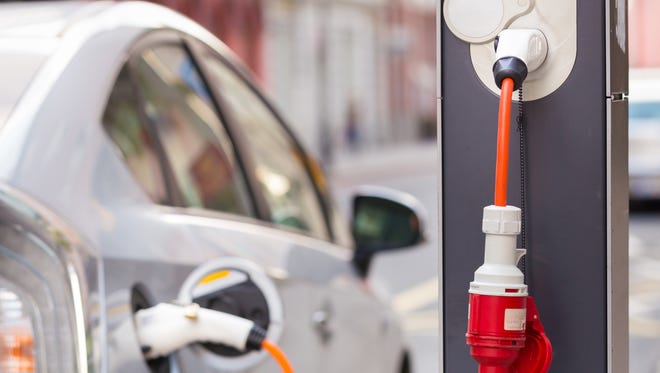New Jersey Must Stall on Its Electric Vehicle Mandate
The Advanced Clean Cars II rule, adopted by New Jersey in 2023, mandates that all new car sales be zero-emission vehicles by 2035. The rule’s upcoming 2027 milestone requires 43% of new car sales to be ZEVs, but this target is likely unattainable and will increase costs for consumers.

The Murphy administration’s efforts to reduce emissions and transition to more sustainable transportation options are commendable. However, the first milestone of this mandate is unachievable and will significantly add costs for both consumers and businesses during a severe affordability crisis. Under the mandate, 43% of sales of new passenger cars, trucks, and SUVs will be required to be Zero Emission Vehicles starting with model year 2027 vehicles. The ultimate objective is to make 100% of new car sales ZEVs by 2035.
In 2024, EV sales accounted for 14% of total car sales in New Jersey, which is an improvement but still far below the mandated target. Auto manufacturers that don’t meet the mark will be subject to substantial penalties, leading to higher prices for new cars and used gas-powered cars, and fewer choices for consumers at dealerships.
We urge the Murphy administration to join Maryland in delaying initial penalties for EV manufacturers who do not meet sales goals under the Advanced Clean Cars II rule. This would be a helpful first step for automakers and their dealerships, who have made considerable EV investments. It will also prevent New Jersey consumers from traveling to neighboring non-ACCII states to buy a new car.
Beyond that, we encourage our leadership to be more practical in the transition to EVs. States like Virginia and Connecticut have exited ACC II, recognizing that the targets are unrealistic. The marketplace is experiencing a natural increase in EV users in New Jersey, but the ban on new gas-powered cars by 2035 doesn’t take into account costs, feasibility, infrastructure limitations, grid capacity, or consumer choice.
We can and should make our transition to cleaner transportation without unworkable mandates. The current approach ignores the complexities of the transition and will ultimately harm consumers and businesses.



